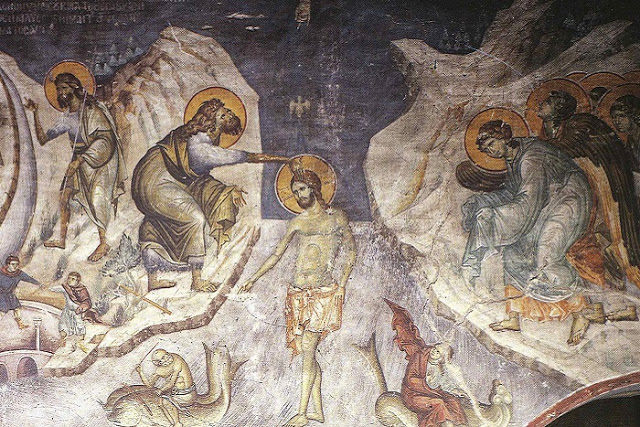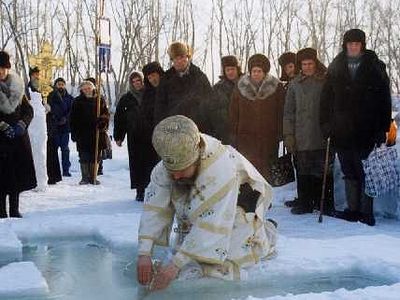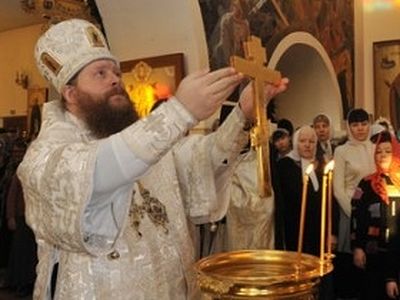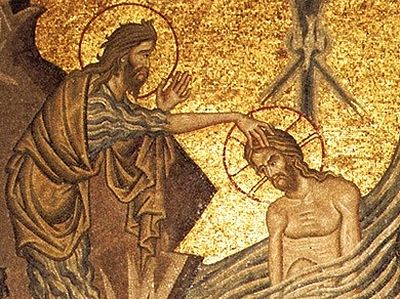Source: St. Elisabeth Convent

On January 19, the Orthodox Church celebrates the feast of the Holy Theophany of our Lord Jesus Christ. It is also called the feast of the “Epiphany” or, as it was called in ancient times, “Epifania” - the Appearance of God in our world.
The name of this feast reflects its essence, because God ceased to be a Faceless Apostle for people, Who existed somewhere far from our real being, and Whose will people had to obey. God ceased to be the God of Job, who addressed the Maker, but could not always hear and understand His answers. God become close to us, because He came into this world as a human, He incarnates, accepting the human’s nature. As Apostle John the Theologian writes, “And the Word was made flesh, and dwelt among us, (and we beheld his glory, the glory as of the only begotten of the Father,) full of grace and truth” (John, 1:14).
The Lord in Christ accepted the full experience of the human’s life. The only thing He differed from us on earth was that He was free from sin, and this is another thing the feast of the Theophany reminds us about. Christ came to the one, who had become His Forerunner. To the one, who had to make the world ready for the coming of the Messiah, Who would save them all from sin and the devil, as the Prophet Isaiah said. And when Christ stepped into the waters of the Jordan river, John the Forerunner saw that this Man was the only human being on earth Who was not exposed to the blight of sin. And then his understanding was strengthened by the voice of God the Father, sounding from the sky, and the descent of the Holy Spirit on Christ the Savior (the appearance of the Holy Spirit in Him), which meant that God came to heal our spiritual wounds and change our life.
The image of the Theophany of Christ reminds us about one of the Old Testament events – the Great Flood, which wiped the sin out of earth. The Holy Spirit, descending in the shape of a dove, tells us about the dove, sent by God to Pious Noah to prove the reconcilement between Himself and people. The event of the Christ’s Theophany tells that Christ came to our world to reconcile the humanity with God in Himself. As St. Gregory of Nyssa wrote, He leaned over our pathetic being, over our dead body to make it resurrect with the power of His Resurrection. The whole earthly life of the Savior was devoted to that. He preached for people, He taught people, He healed the weak and even raised the dead – all those things were aimed to show God as the Loving Father, Who cares about a human and his needs.
On the day of the Theophany we also should remember about the appeal, with which Christ started His social ministry: “Repent: for the kingdom of heaven is at hand” (Matthew, 4:17). The repentance (metanoia) as our changes for the better: the cultivation of a moralist thinking and personal perception should be the dominance of each Christian’s life. It should constantly remind him about the day, when he rejected the devil and washed his sins in the baptistery, when, according to St. Simeon the New Theologian, the seed of grace was planted in his soul, so that it can grow as the fruits of good. His whole life should be a constant mindfulness about what God has done for him, when He entered the history of the humanity and changed it once and forever.



